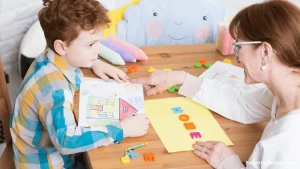Parenting is an expedition filled with challenges, triumphs, and the profound responsibility of shaping young lives. It’s a role that molds the future one day at a time, influencing not just the immediate well-being of our children but the fabric of society itself.
This comprehensive guide explores the multifaceted aspects of parenting, emphasizing the importance of a strong foundation, effective guidance strategies, fostering growth and development, addressing age-specific challenges, and considering the broader influences of parental role modeling and diverse family structures.
The essence of parenting transcends the mere act of raising a child; it’s about nurturing a whole, independent person.
Our parenting styles significantly impact our children’s development, self-esteem, emotional well-being, and future relationships. Understanding the gravity of this impact is the first step toward mindful parenting.
Acknowledging the non-existence of a perfect parent is crucial. Every parent makes mistakes, and it is through these mistakes that growth and learning occur. The parenting journey is evolving, where striving for progress, not perfection, paves the way for both parent and child to grow together.
Building a Strong Foundation
Unconditional love and acceptance are at the heart of a child’s sense of security and self-worth. Demonstrating unconditional love involves attentive listening, physical affection, and affirming your child as they are, not as you wish them to be.
Actionable tips for conveying this love include validating their feelings, supporting their interests, and ensuring they feel seen and heard.
Also read: Stop Helicopter Parenting: Tips to Avoid Hovering
Nurturing the Parent-Child Bond
Spending quality time together fosters a strong bond. This means engaging in dedicated one-on-one time and shared activities that are enjoyable and meaningful.
Ideas for connecting include regular “date nights” with your child, engaging in a shared hobby, or simply talking about their day.
Open Communication
Creating an environment where open communication thrives ensures your child feels safe sharing their feelings, fears, and triumphs.
This involves active listening, empathetic responses, and age-appropriate discussions encouraging your child to express themselves freely.
The Power of Self-Care
A parent’s well-being is integral to their ability to provide care. Self-care, stress management, and cultivating a support system are essential practices.
Taking breaks, engaging in hobbies, and seeking emotional support from friends, family, or professionals can replenish your energy and perspective.
Effective Guidance Strategies
Contrasting with punitive measures, positive discipline focuses on teaching and guiding. Clear rules, natural consequences, and problem-solving emphasize learning over shaming, fostering a sense of responsibility and self-regulation in children.
Clear, consistent boundaries and expectations are crucial for a child’s security. Communicating these boundaries lovingly and firmly helps children understand their actions’ limits and consequences.
Recognizing effort, improvement, and positive behaviors through specific praise reinforces these actions and boosts self-esteem. Generic praise, while well-intentioned, often lacks the impact of feedback that acknowledges specific achievements or efforts.
Also read: Twin Parenting Simplified: How to Handle Twins Tips

Fostering Growth and Development
Developing emotional intelligence begins with recognizing and labeling emotions. Teaching children to understand and regulate their feelings and to empathize with others lays the groundwork for healthy emotional development.
Nurturing Independence
Balancing support with the encouragement of autonomy involves allowing children to make decisions within set boundaries, fostering their sense of independence and responsibility.
Teaching Problem-Solving and Resilience
Guiding children through challenges, rather than rescuing them, helps develop their problem-solving skills and resilience. Encouraging them to brainstorm solutions and learn from setbacks builds a foundation for lifelong coping skills.
Instilling Values
Modeling behaviors and discussing values such as honesty, respect, and kindness are fundamental. Encouraging community involvement and volunteerism can further reinforce these values, showing children the importance of contributing to society.
Addressing the Challenges of Different Ages
Parenting strategies must evolve to address children’s changing needs and challenges as they grow.
- Infants/Toddlers: Build trust, ensure a responsive environment, and prioritize safety.
- Young Children: Encourage exploration, provide guidance, manage tantrums, and build foundational social skills.
- Older Children & Teens: Navigate the complexities of independence, peer pressure, and technology use, fostering open dialogue about complex topics.

The Impact of Parental Role Modeling
Children learn by example. The behaviors, values, and attitudes parents model play a critical role in the lessons children internalize. It is essential to be mindful of our actions and the values we demonstrate.
Good parenting transcends family structures, backgrounds, and styles. Recognizing and respecting diversity in family forms enriches the parenting experience and fosters inclusivity and understanding in children.
Parenting is challenging, and seeking help is a sign of strength. Professional support, books, websites, and classes can offer valuable guidance and reassurance.
Conclusion
Parenting is a journey of continuous learning and growth. We can guide our children toward becoming their best selves by fostering a loving, supportive environment and being mindful of our actions and attitudes.
Remember, the goal is not perfection but progress together, learning from each experience and cherishing the journey.
FAQs
What is the most critical aspect of building a solid foundation in parenting?
The most crucial aspect is unconditional love and acceptance. Demonstrating this love gives children a sense of security and self-worth, essential to their overall development.
How can parents effectively practice positive discipline?
Parents can practice positive discipline by setting clear rules and consequences and focusing on teaching rather than punishing. Strategies include using natural consequences, redirection, and solving problems together, which foster a child’s sense of responsibility and self-regulation.
What are some ways to foster open communication with children?
Fostering open communication involves active listening, validating their feelings, and engaging in age-appropriate conversations that make them feel safe to share. Creating a judgment-free space where children can express themselves openly is key.
How can self-care impact parenting?
Self-care is crucial for maintaining a parent’s emotional and physical well-being, directly impacting their ability to provide care. Taking breaks, managing stress, and having a support system help parents replenish their energy and maintain a positive perspective.
What strategies can help in nurturing a child’s independence?
Encouraging decision-making within limits, providing age-appropriate responsibilities, and allowing natural consequences to teach lessons can foster independence. It’s about balancing support with encouraging autonomy.
Why is emotional intelligence critical for children, and how can parents help develop it?
Emotional intelligence is vital for understanding and regulating emotions, developing empathy, and building healthy relationships. Parents can help by recognizing and labeling emotions and teaching children to manage their feelings appropriately.








